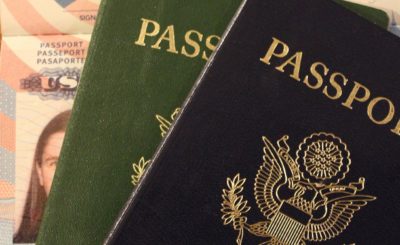The Various Outcomes of a DUI Arrest
The DUI process after an arrest can be murky to those who have never received a DUI charge. There is also conflicting information on the internet in regards to what can happen to you. Truly, the outcomes of a DUI Arrest and conviction vary depending on your blood alcohol content at the time of your arrest, if you had previous DUI charges, if you were involved in an accident, if you severely injured another person, what speed you were going, if there were narcotics in your vehicle, or illegal weapons, or of course if you had a warrant. We will attempt to help you better understand the potential outcomes.
Outcomes of a DUI Arrest #1: Felony DUI
Very rare. Most DUI cases tend to end up being classified as misdemeanors. A DUI tends to only become a felony if you commit a traffic violation while you are under the influence. A traffic violation can involve anything from speeding, crossing in between the lines with signaling, driving the wrong way, running a stop light and so on. If you commit any such acts while injuring an innocent party you will be charged with a felony DUI. In a majority of states, you will immediately be informed if you are being charged with a felony DUI. If they don’t tell you right away you will be able to know based on the fact that you have a bond for your release from jail. In most states a felony DUI requires a $3k-$5k fine in addition to classes, community service, 180 days in jail, and some extended form of DUI program (anywhere from 12-30 months). Of course you will also have to pay restitution (aka a lot of money) to the parties you injured.
Outcomes of a DUI Arrest #2: Enhanced Penalty DUI/Aggravated DUI
If your arrested for a DUI and involved in an accident as a result of speeding or are under 21 while doing so you will receive this penalty. It various in states of what the required BAC level is for this charge. In most states once your hit anything above a .15 BAC such charges are required to be brought against you. Additional charges will also be brought against depending on how detrimental the accident you were involved in. These charges tend to require a 9-15 month DUI program and Alcohol Anonymous meetings.
Outcomes of a DUI Arrest #3: OG DUI
The “OG” or original charge as some of us call it in the legal field. If its your first DUI and depending on what state you were charged in, a charge of $400-1500 will be assessed (not including court fees). You will also have a 4-6 month license suspension ( which potentially can be reduced to 30 day suspension with a 5 month restricted license) a 3-month DUI program, and 2-4 years of probation.
Outcomes of a DUI Arrest #4: Wet Reckless
This is less of a charge and more of a compromise between you and the prosecutor’s office. This occurs when the police’s equipment was not operating correctly when they arrested you for a DUI. Sure you and the police know your guilty, but because the police had some faulty equipment or forgot to do something properly the prosecutor can not technically charge you with a DUI. However, they cant’ simply let you go off that charge. It’s possible this occurs but that is extremely rare. Instead they charge you with Wet Reckless, (usually to appease their boss). This charge says you were intoxicated, but not technically legally intoxicated. You can not be arrested for such a charge. This charge tends to have lesser finds, no suspension, and a 4-6 week DUI suspension. However…if you get a real DUI charge some time later for something (not this case but in a later incident), the Wet Reckless charge turns into a first DUI. Meaning that real second DUI means that you are now a repeat offender and will be viewed as such in the eyes of the legal system.
Outcomes of a DUI Arrest# 4: Dismissal
The holy grail. The holiest of holiest. The miracle. The most least likely to ever happen to you if your charged with a DUI outcome. This only occurs if the DUI stop in some way was illegal, none of the police equipment to test you was operating correctly, the police did something illegal against you or prejudicial and it would be in the prosecutors best interest to dismiss the case rather than file charges against you. A dismissal means you are let go free. However, you still have to face the DMV. The DMV ultimately could still attempt to suspend your license in some states. This however, is still unlikely. It would be hard for the DMV to prove you were intoxicated if the prosecutor was not able to do so and bring charges against you.
There are of course other charges that can be brought resulting in varying outcomes. It is important to check your state laws too see all the potential consequences. As always its important that you speak to a DUI lawyer as well.






